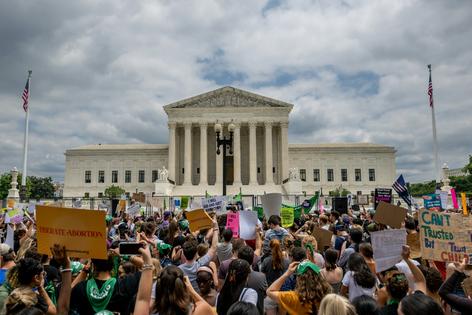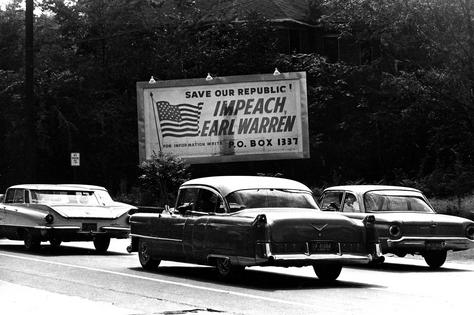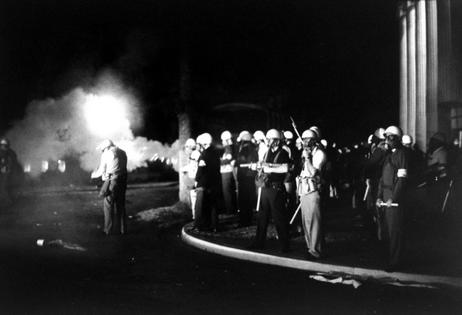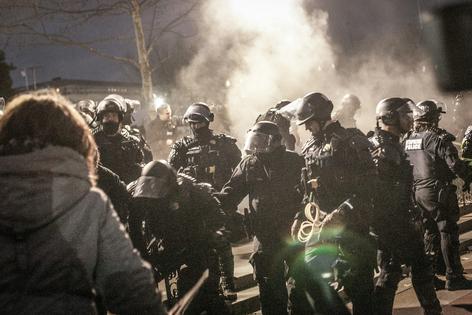Loss of Supreme Court legitimacy can lead to political violence
Published in Political News
Americans are gearing up to celebrate the Fourth of July, and their thoughts are most likely on how many hot dogs to buy for the cookout and whether a family member needs to go stake out a good spot to watch the parade and fireworks.
While the holiday is focused on revelry, July Fourth actually commemorates a solemn moment in the country’s history, when it declared independence from the colonial power Great Britain. The institutions of government imagined by the founders and their successors over the following decades – among them the presidency, Congress, the departments of State and Treasury, the Supreme Court – have retained their authority and legitimacy for more than 200 years, weathering challenges from wars both internal and abroad and massive economic, political and social upheaval.
But now, the Supreme Court, in the wake of a series of highly controversial rulings and ethical questions about some justices, is experiencing historically low public standing. And that has prompted a national conversation about the court’s legitimacy. It’s even drawn rare public comment from three sitting Supreme Court justices.
What’s referred to by experts as the problem of “judicial legitimacy” may seem abstract, but the court’s faltering public support is about more than popularity.
Eroding legitimacy means that government officials and ordinary people become increasingly unlikely to accept public policies with which they disagree. And Americans need only look to the relatively recent past to understand the stakes of the court’s growing legitimacy problem.
The Supreme Court’s 1954 decision in Brown v. Board of Education shined a light on many white Americans’ tenuous loyalty to the authority of the federal judiciary.
In Brown, the court unanimously held that racial segregation in public education violates the equal protection clause of the 14th Amendment. The justices were abundantly aware that their decision would evoke strong emotions. So Chief Justice Earl Warren worked tirelessly to ensure that the court issued a unanimous, short and readable opinion designed to calm the anticipated popular opposition.
Warren’s efforts were in vain. Rather than recognizing the court’s authoritative interpretation of the Constitution, many white Americans participated in an extended, violent campaign of resistance to the desegregation ruling.
The integration of the University of Mississippi in 1962 provides a pointed example of this resistance.
The Supreme Court had backed a lower federal court that ordered the university to admit James Meredith, a Black Air Force veteran. But Mississippi Gov. Ross Barnett led a wide-ranging effort to stop Meredith from enrolling at Ole Miss, including deploying state and local police to prevent Meredith from entering campus.
On Sunday, Sept. 30, 1962, Meredith nevertheless arrived on the university’s campus, guarded by dozens of federal marshals, to register and begin classes the next day. A crowd of 2,000 to 3,000 people gathered on campus and broke into a riot. Meredith and the marshals were attacked with Molotov cocktails and gunfire. The marshals fired tear gas in return.
In response, President John F. Kennedy invoked the Insurrection Act of 1807 and ordered the U.S. Army onto campus to restore order and protect Meredith. Overnight, thousands of troops arrived, battling rioters.
The violence finally ended after 15 hours, leaving two civilians dead – both killed by rioters – and dozens of wounded marshals and soldiers in addition to hundreds of injuries among the insurgent mob.
The next day, Oct. 1, Meredith enrolled in the university and attended his first class, but thousands of troops remained in Mississippi for months afterward to preserve order.
What some call “the Battle of Oxford” was fueled by white racism and segregation, but it played out against the backdrop of weak judicial legitimacy. Federal courts did not command enough respect among state officials or ordinary white Mississippians to protect the constitutional rights of Black Mississippians. Neither Gov. Barnett nor the thousands of Oxford rioters were willing to follow the court order for Meredith to enroll at the university.
In the end, the Constitution and the federal courts prevailed only because Kennedy backed them with the Army. But the cost of weak judicial legitimacy was paid in blood.
In contrast, when people believe in the legitimacy of their governing institutions, they are more likely to accept, respect and abide by the rules the government – including the courts – ask them to live under, even when the stakes are high and the consequences are far-reaching.
For example, two decades ago, the Supreme Court resolved a disputed presidential election in Bush v. Gore, centered on the counting of ballots in Florida. This time, the court was deeply divided along ideological lines, and its long, complicated and fragmented opinion was based on questionable legal reasoning.
But in 2000, the court enjoyed more robust legitimacy among the public than it does today. As a consequence, Florida officials ceased recounting disputed ballots. Vice President Al Gore conceded the election to Texas Gov. George W. Bush, specifically accepting the Supreme Court’s pivotal ruling.
No Democratic senator challenged the validity of Florida’s disputed Electoral College votes for Bush. Congress certified the Electoral College’s vote, and Bush was inaugurated.
Democrats were surely disappointed, and some protested. But the court was viewed as sufficiently legitimate to produce enough acceptance by enough people to ensure a peaceful transition of power. There was no violent riot; there was no open resistance.
Indeed, on the very night that Gore conceded, the chants of his supporters gathered outside tacitly accepted the outcome: “Gore in four!” – as if to say, “We’ll get you next time, because we believe there will be a next time.”
But what happens when institutions fail to retain citizens’ loyalty?
The Jan. 6, 2021, insurrection showcased the consequences of broken legitimacy. The rioters who stormed the Capitol had lost faith in systems that undergird American democracy: counting presidential votes in the states, tallying Electoral College ballots and settling disputes over election law in the courts.
The men and women who stormed the Capitol may have believed their country was being stolen, even if such beliefs were baseless. So, they rebelled in the face of a result they didn’t like.
The threat of further unrest is real. Polls show the 2024 presidential election between President Joe Biden and former President Donald Trump will be a close call, and it is likely that election results in several states will be challenged in federal courts. Some of these claims may raise good-faith questions about the administration of elections, while others advance more spurious claims intended to undermine faith in the election’s outcome.
In the end, Americans’ faith in the timely resolution of those cases and their peaceful acceptance of the presidential election’s result will hinge on whether the losing candidate’s supporters accept the legitimacy of the Supreme Court and the judiciary more broadly.
Nothing is certain in politics, but the specter of constitutional crisis looms over the United States. It’s dangerously unclear whether the Supreme Court retains enough legitimacy to ensure acceptance of decisions addressing the upcoming election among those who find themselves on the losing side. If it doesn’t, the court’s abstract legitimacy problem could once again lead to violence and insurrection.
This story is an updated version of a story that was originally published on Oct. 31, 2022.
This article is republished from The Conversation, a nonprofit, independent news organization bringing you facts and analysis to help you make sense of our complex world.
Read more:
Strong political institutions can uphold democracy, even if people can’t agree on politics
Alabama is not the first state to defy a Supreme Court ruling: 3 essential reads on why that matters
Matthew Hall has previously received research funding from the National Science Foundation and funding for academic programs from the John S. and James L. Knight Foundation.
Joseph Daniel Ura has previously received research funding from the National Science Foundation and funding for academic programs from the Charles Koch Foundation.




































































Comments